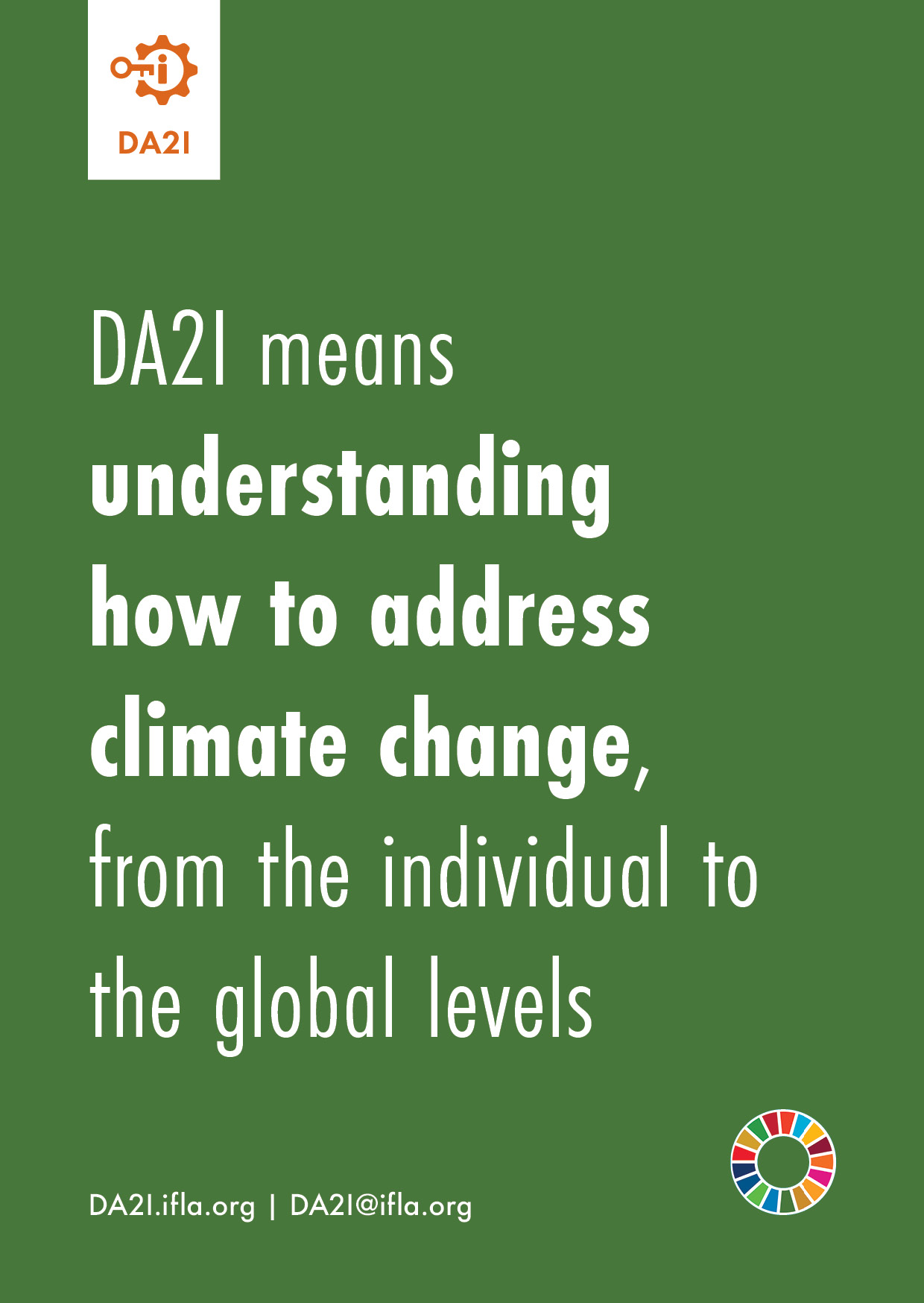 The fourth Sustainable Development Goal (SDG) up for review at the 2019 High Level Political Forum is SDG13 – Climate Action.
The fourth Sustainable Development Goal (SDG) up for review at the 2019 High Level Political Forum is SDG13 – Climate Action.
It underlines the need to take urgent action to tackle climate change and its impacts, with progress needed from the planetary to the individual levels. This is perhaps the clearest example of an issue that requires a truly global approach, as well as the one that poses the most obvious threat to the future of humanity.
Within the library field, the green library movement has for years promoted the contribution that our institutions can make to reducing their own impact on the environment, as well as promoting more sustainable behaviour elsewhere – see our article “Sustainability is Libraries’ Business” on this topic, already translated into seven languages.
But how to explain this role effectively to politicians? Here are three arguments why libraries are unique in achieving SDG13:
- Because we need research at the global level: the first step in tackling the climate crisis is to understand it. Research collaboration between experts around the world has helped show what is happening, and how this is already impacting lives in different parts of the world. This effort needs to continue, as does sharing of practices on how to mitigate this. Libraries are essential to support this research, including by facilitating sharing across borders, and promoting open access.
- Because everyone has a role to play: SDG13 underlines the role that individual behaviour change will play. In all countries, there will be need to be more efficient and less wasteful in the way we live our lives. Libraries have a unique reach into their communities, and can act not only as examples to their users by adopting sustainable practices, but can also be an access point for wider information about how to live more greenly.
- Because the sharing economy helps reduce consumption: a key driver of climate change is over-consumption of manufactured goods. Yet it is not efficient for everyone to have one of everything, for example tools or even household appliances. Libraries are an early example of the sharing economy, with a focus on books, but are not lending out other items which people would otherwise need to buy. In this way, they limit the need to produce new goods, and so create further emissions of carbon dioxide and other pollutants.
For more, see the chapter on SDG13 in the 2019 Development and Access to Information (DA2I) Report by Karl Falkenberg.